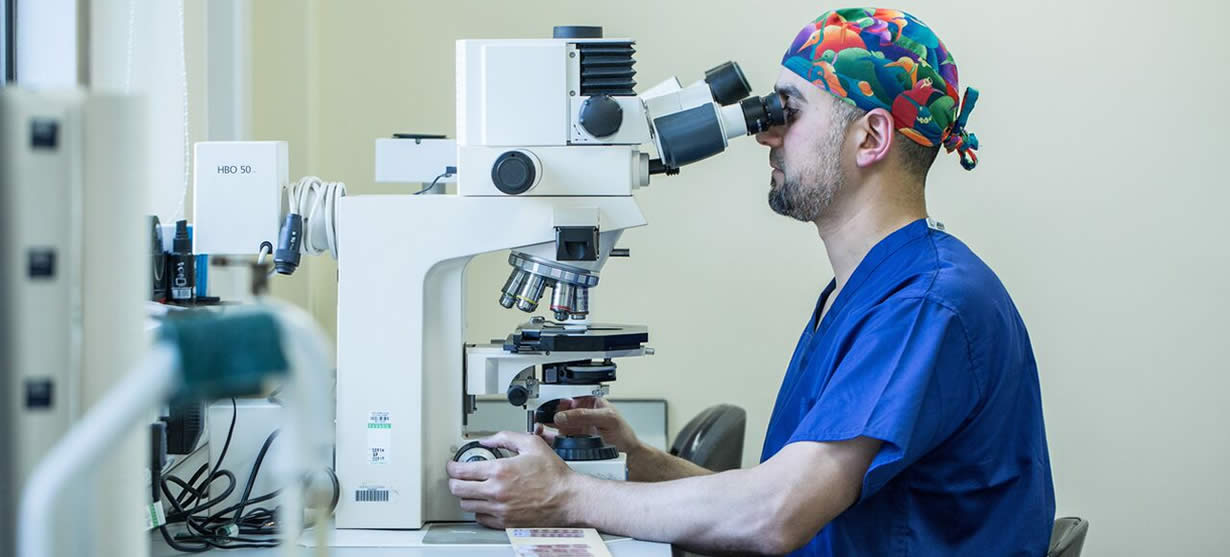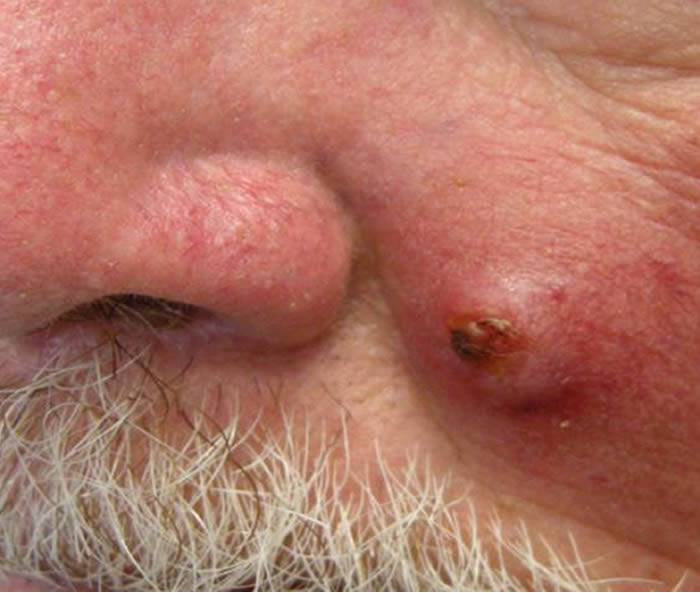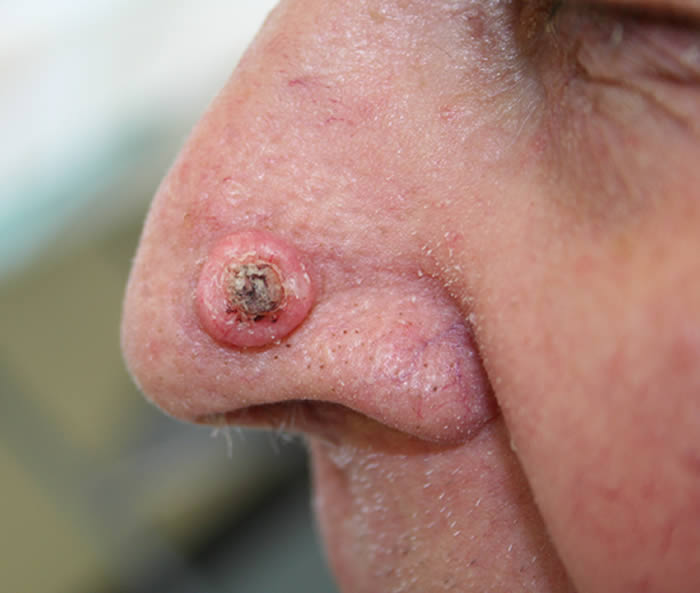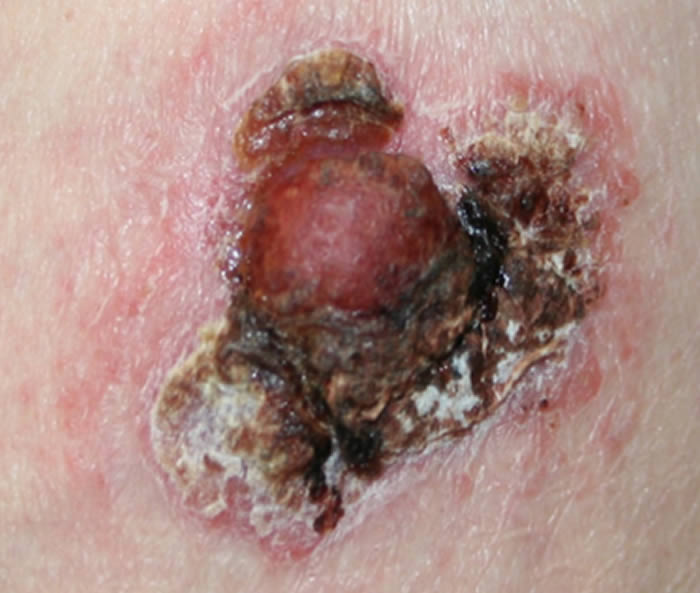Squamous Cell Carcinoma (SCC)

What is a squamous cell carcinoma (SCC)?
A squamous cell carcinoma (SCC) is a type of skin cancer. Squamous cell carcinoma (SCC) is a type of non-melanoma skin cancer. It is the second most common type of skin cancer in the UK and accounts for 23% of all non-melanoma skin cancers.
What causes a squamous cell carcinoma (SCC)?
Exposure to UV light from the sun or sunbeds is the commonest cause of SCC. This exposure damages the DNA of skin cells causing the outer layer of the skin to change. If this alteration in DNA allows the skin cells to grow out of control, a squamous cell skin cancer can develop.
UV skin damage can cause SCC directly, or can cause a scaly area of sun damaged skin, called an actinic keratosis (AK) or Bowen’s disease. These can change into SCC if they are not treated.
Squamous cell carcinomas (SCC) can also develop in skin damaged by other forms of radiation, in burns and persistent chronic ulcers and wounds and in old scars.
Who is most likely to have a squamous cell carcinoma (SCC)?
The following may be at greater risk of developing SCC:
What does a squamous cell carcinoma (SCC) look like?
Diagnosing a SCC can be extremely challenging. It is important that your skin is assessed by an expert to ensure you get the right diagnosis and any necessary treatment as soon as possible. Dr Hussain is an expert in skin cancer and deals with patients with SCC on a daily basis in his practice.



SCC may appear as a scaly or crusty raised area of skin with a red, inflamed base. SCCs can be sore or tender and they can bleed. Not uncommonly they can appear as an ulcer. SCC can occur on any part of the body, but they are more common on sun exposed sites such as the head, ears, neck and back of the hands.
How will my squamous cell carcinoma be diagnosed?
If your doctor thinks that the lesion on your skin needs further investigation, you should be referred to a Consultant Dermatologist. To confirm the diagnosis, a small piece of the skin (a biopsy), or the whole area (an excision biopsy), may be removed using a local anaesthetic and sent to a pathologist to be examined under the microscope. Due to his expertise in skin cancer diagnosis, Dr Hussain may be able to make the diagnosis without the need for a biopsy.
Can a squamous cell carcinoma be cured?
Yes – in most cases once the cancer is successfully removed from the skin it will not cause any problems in the future. A small number of SCCs can return on the skin (local recurrence) and/or spread (metastasise) to the lymph nodes or to other parts of the body.
How can a squamous cell carcinoma be treated?
Dr Hussain will be able to discuss with you the best way of treating your squamous cell cancer (SCC). Surgery is often the recommended treatment. This involves either Mohs surgery or removing the SCC with a margin of normal skin around it, using a local anaesthetic. Once the cancer has been successfully removed, Dr Hussain will reconstruct the wound to give you the best possible functional and cosmetic result.
Very occasionally other surgical methods such as curettage & cautery (scraping the SCC away using local anaesthetic) may be used by Dr Hussain.
Radiotherapy can also be used to treat SCC if surgery is either inappropriate or of concern to patients. This involves shining X-rays onto the skin & although it avoids the ‘cutting of surgery’, it requires several treatment visits to the hospital.
For more advanced SCC, a combination of treatments may be used. Dr Hussain is Lead of the Non-Melanoma Skin Cancer Multi-disciplinary team where such treatment decisions are made and will therefore be in a position to guide you.
If you have any questions or comments, or if you want to learn more about the services of Dr Walayat Hussain, please call 0113 388 2234 or submit an online form by clicking here.

